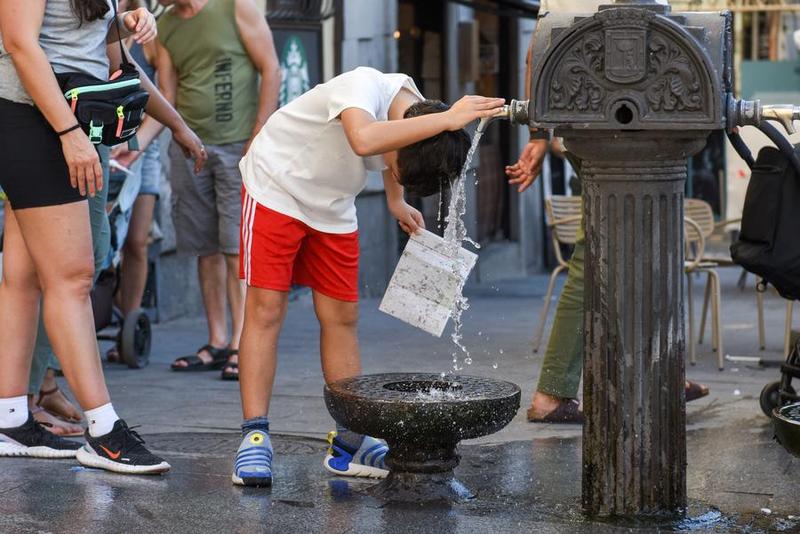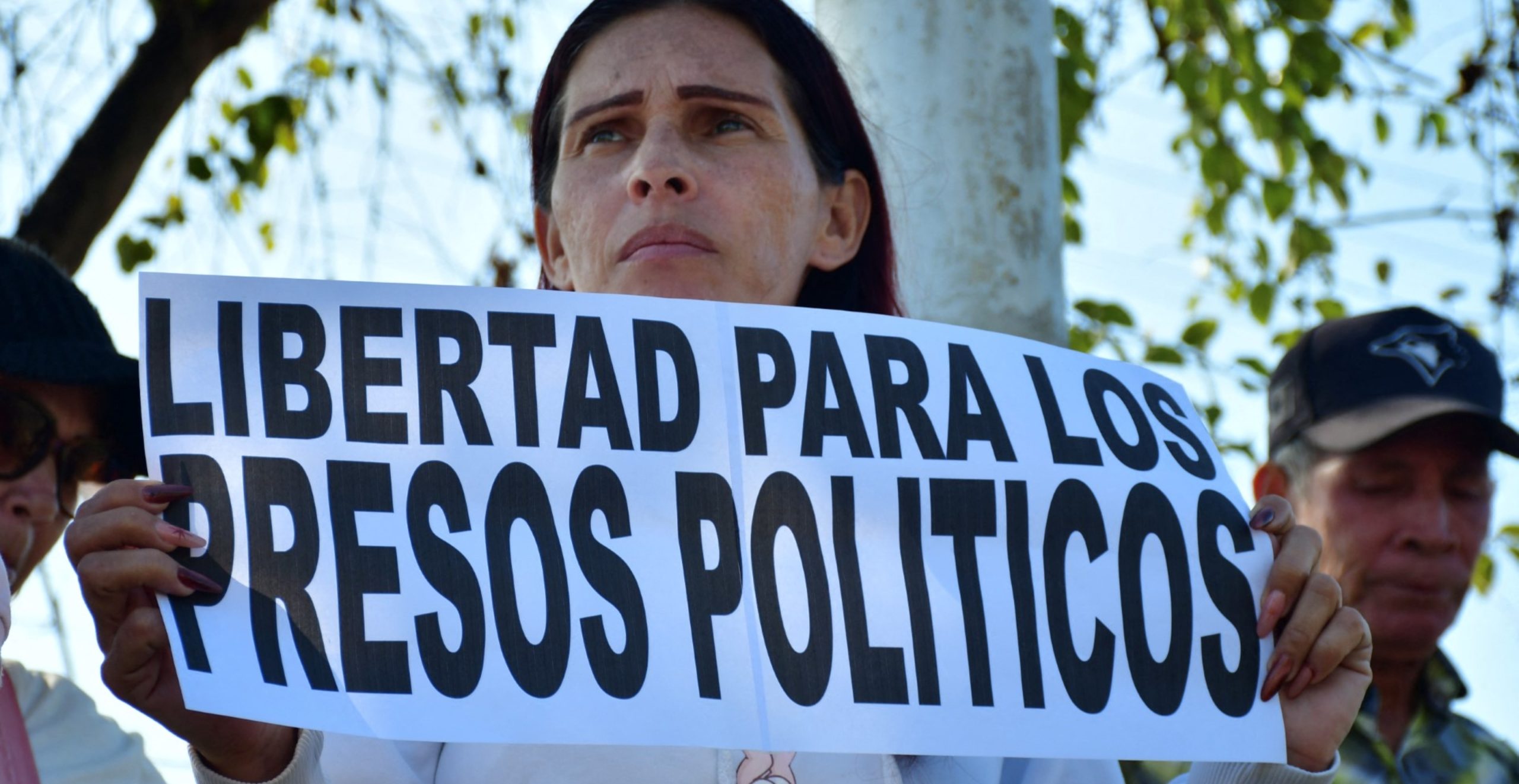International
Brazil deploys nearly 4,000 military personnel for border protection

November 7 |
The Brazilian government implemented this Monday actions in response to the public security crisis, deploying 3,700 military personnel from the Air Force, the Army and the Navy in ports and airports in the cities of Rio de Janeiro and São Paulo, with the intention of stopping the trafficking of arms and drugs by criminal groups.
The integrated operation is framed after a situation of violence, which consisted of war actions between criminal groups and police in the state of Bahia, and that in Rio de Janeiro experienced the sabotage of public transport with the burning of several of its buses and at least one train.
As planned, Army forces, in collaboration with the police, will guard the area of the ports of Itaguaí in Rio de Janeiro and Santos in Sao Paulo, as well as the airports of Guarulhos and Galeão in Rio de Janeiro and Sao Paulo, respectively.
Federal police and Navy forces are also expected to be deployed in the bays of Guanabara and Sepetiba, in the port of Santos and at Itaipu Lake.
Authorities are planning air and land reinforcement of all the country’s borders, limits in the states of Paraná, Mato Grosso and Mato Grosso do Sul, as well as intelligence actions and operations to arrest and seize gang assets in order to weaken organized crime and its financial power.
Brazilian President Luiz Inácio Lula da Silva, together with the Minister of Justice and Public Security, Flávio Dino, and representatives of the Armed Forces, launched an integrated operation to combat organized crime on November 1.
The head of state issued a set of measures and signed the Law and Order Guarantee Decree, which will expire on May 3, 2024. This legal framework will allow the mobility of the military.
International
Spain’s irregular migrant population rises to 840,000, study finds

The number of migrants living in Spain without legal residency status continues to rise and has reached 840,000 people, with 91% originating from the Americas, particularly Colombia, Peru and Honduras, according to a report by the Spanish think tank Funcas (Foundation of the Savings Banks).
An estimated 17.2% of the non-EU foreign population living in Spain is in an irregular administrative situation. The estimate is based on the gap between the number of foreign residents effectively living in Spain, according to the National Statistics Institute (INE), and those who hold a residence permit, benefit from international protection, or are in the process of obtaining it.
The data, as of January 1, 2025, point to a notable and sustained increase in irregular migration since 2017, when the estimated figure stood at around 107,000 people, representing 4.2% of the non-EU population residing in Spain.
By origin, migrants from the American continent stand out, totaling around 760,000 people, or 91% of all irregular migrants. Colombians account for nearly 290,000, followed by Peruvians with almost 110,000, and Hondurans with about 90,000. Migrants from Africa (50,000), Asia (15,000) and Europe (14,000) trail far behind.
The figures predate Spain’s latest immigration regulation reform, which came into force in May 2025 and introduces measures to ease access to legal status through residency ties. According to Funcas, the reform would, in principle, tend to reduce the number of migrants in an irregular situation.
International
Historic snowstorm paralyzes Toronto after 60 centimeters of snow

Toronto, Canada’s largest city and the fourth most populous in North America, was largely paralyzed on Monday after a historic snowstorm dumped up to 60 centimeters of snow and sent temperatures plunging to -15 degrees Celsius, authorities said.
Late Sunday, as the scale of the snowfall became clear, city officials declared a climate emergency, triggering extraordinary measures including parking bans on several major streets to facilitate snow removal operations.
Toronto’s public transit authority reported that while some buses remain immobilized, subway and streetcar services are operating with relative normality, though localized disruptions may occur.
A similar situation is affecting the city’s commuter rail network, which remains operational but is experiencing significant delays on its main routes due to the severe weather conditions.
International
Venezuela frees at least 80 political prisoners, NGO says

At least 80 political prisoners were released on Sunday across Venezuela, human rights group Foro Penal reported, as the broader process of detainee releases continues at a slow pace under the interim government.
Foro Penal’s director, Alfredo Romero, wrote on social media platform X that verified releases took place nationwide and that the figure could rise as more confirmations are completed.
Attorney Gonzalo Himiob, also from Foro Penal, said the excarcelations occurred during the early hours of the day and emphasized that the number is not yet final pending further verification.
The releases are part of a series of steps announced by Venezuela’s interim leader, Delcy Rodríguez, who took power after the capture of former President Nicolás Maduro in a U.S. military operation on Jan. 3, 2026. Rodríguez has pledged a significant number of liberations but has been criticized by opposition groups and rights organizations for the slow and nontransparent nature of the process.
So far, the Venezuelan government reports that 626 detainees have been freed since December, though independent counts by human rights groups suggest the number of actual political prisoner releases is lower and that many remain behind bars.
Families of those still detained have maintained vigils outside prisons, hopeful for further releases even as broader concerns about political imprisonment and due process persist.
-

 Central America5 days ago
Central America5 days agoMazatenango Carnival cancelled amid State of Siege in Guatemala
-

 International5 days ago
International5 days agoTrump to invite Venezuela’s interim president Delcy Rodríguez to Washington
-

 International5 days ago
International5 days agoMarkets rise as Trump halts Europe tariffs and floats Greenland agreement framework
-

 International5 days ago
International5 days agoVenezuela’s interim president predicts 37% increase in revenues for 2026
-

 International3 days ago
International3 days agoTrump-Era Defense Plan Prioritizes Border Security and Scales Back Global Commitments
-

 Internacionales4 days ago
Internacionales4 days agoMajor winter storm threatens “catastrophic” ice and snow across much of the U.S.
-

 Central America4 days ago
Central America4 days agoGuatemala’s president rules out negotiations with inmates after prison riots
-

 International5 days ago
International5 days agoFour minors killed in deadly clash between FARC dissidents in Colombia’s Amazon
-

 International5 days ago
International5 days agoJapan reopens Kashiwazaki-Kariwa Plant despite public concerns
-

 International3 days ago
International3 days agoBogotá and Quito Seek Dialogue After Tariffs and Power Cut Escalate Tensions
-

 International4 days ago
International4 days agoGuatemala considers sending high-risk gang members to military prisons
-

 International2 days ago
International2 days agoDelcy Rodríguez seeks political agreements after Maduro’s ouster
-

 International4 days ago
International4 days agoRights group says over 5,000 killed in Iran protests, mostly civilians
-

 International2 days ago
International2 days agoFederal immigration agents kill man in Minneapolis, sparking protests and outrage
-

 International19 hours ago
International19 hours agoHistoric snowstorm paralyzes Toronto after 60 centimeters of snow
-

 International19 hours ago
International19 hours agoSpain’s irregular migrant population rises to 840,000, study finds
-

 International19 hours ago
International19 hours agoRights group says nearly 6,000 killed in Iran protest crackdown
-

 Central America19 hours ago
Central America19 hours agoGuatemala seizes over a ton of cocaine hidden in flour at Pacific port
-

 International19 hours ago
International19 hours agoVenezuela frees at least 80 political prisoners, NGO says
-

 International19 hours ago
International19 hours agoEU launches new probe into X over AI-generated fake nude images
-

 International19 hours ago
International19 hours agoFrance debates ban on social media for children under 15
-

 International19 hours ago
International19 hours agoSevere winter storm grips U.S., leaves multiple dead as extreme cold persists
















































































